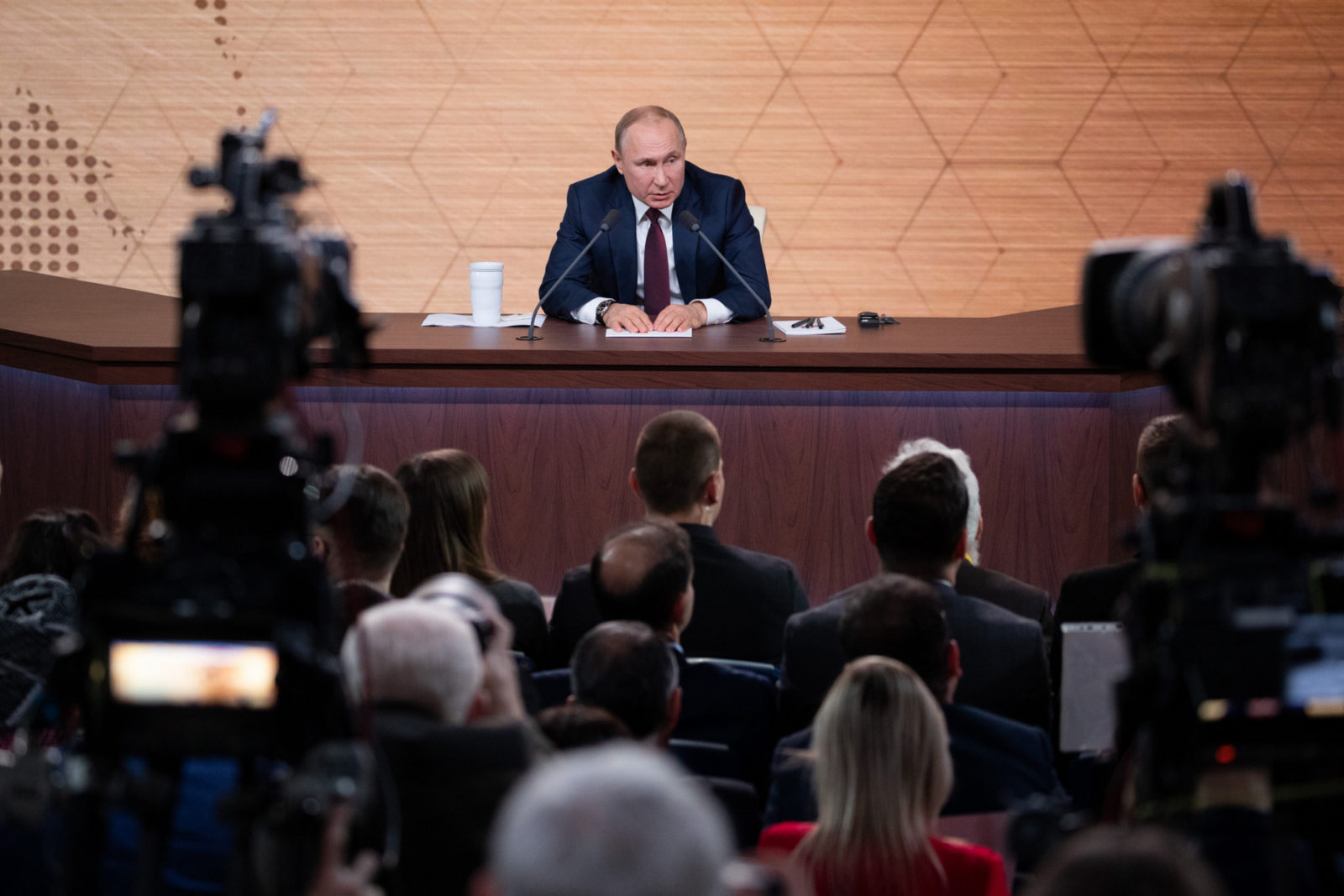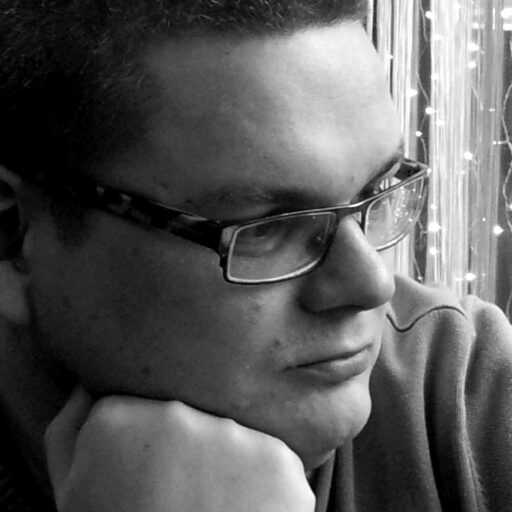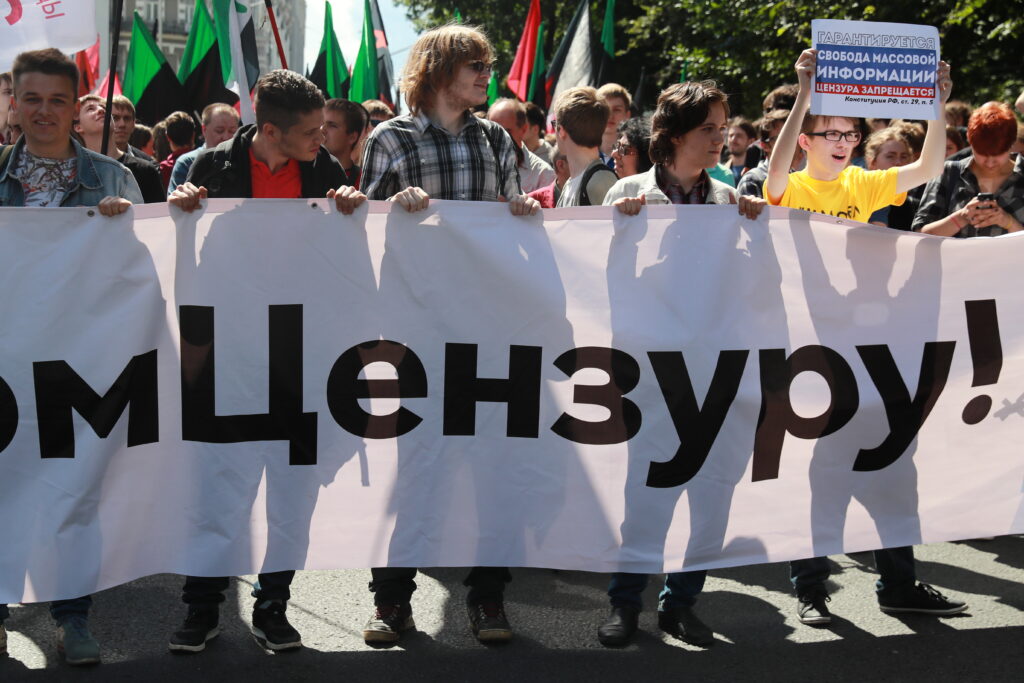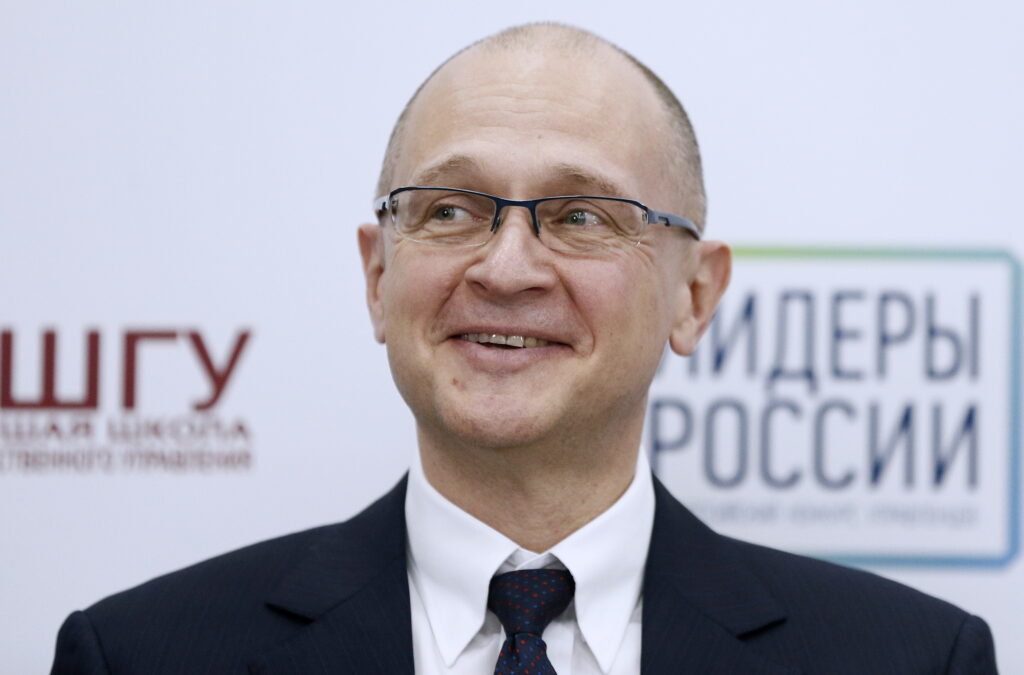The head of the Russian government is talkative. Twice a year, Vladimir Putin talks solidly for several hours. During Direct Line with Vladimir Putin (this event is now held in spring or summer), the President of the Russian Federation addresses citizens’ complaints. He then takes measures to deal with shortcomings and backlogs caused by regional officials. During a huge press conference at the very end of the year, the president raises a plethora of topics while talking to Russian and foreign journalists. On top of that, he participates in various economic forums, meets manufacturing workers, volunteers, members of the All-Russian Popular Front and foreign experts during the Valdai Discussion Club’s meetings. In general, Putin talks a lot and willingly.
At the same time (don’t forget that the President who personifies the Russian power elite is a former KGB officer), this chattiness is in fact a form of secrecy. It is not only Putin but other top officials as well who are skilled in ambiguous and meaningless talk. Their goal is not to conduct a dialogue, but to hide their intentions.
However, 2019 is an exception. In January, the authorities made clear what they were going to do with the country, although the message could be deciphered as coherent content only now, when the year is over.
Two documents
The year 2018 turned out not to be entirely successful for Putin and his team. An increase in the retirement age enraged the country. The state propaganda machine started to lose traction; Russians suddenly lost interest in stories about Ukrainian horrors and started to pay attention to their own situation — not enviable, to say the least. The Kremlin witnessed protests, failures in the gubernatorial election in several regions and a decline in the presidential approval rating.
The rating is a fetish for the presidential milieu. It is the main indicator of Putin’s success and the main argument in any political debate. Even the slightest dip is a problem. In the summer of 2019, sociologists from the Russian Public Opinion Research Centre VCIOM (which is extremely loyal to the authorities) recorded a significant decrease in Putin’s confidence rating. Presidential Press Secretary Dmitry Peskov made it clear that this result was unacceptable. And the sociologists changed their methodology without batting an eye. The rating sky-rocketed.
Earlier, in February, Putin had delivered his annual address to the Federal Assembly. Most of his speech was devoted to socio-economic problems. The president almost missed out on his beloved foreign policy and skipped his latest missiles. But he promised a lot: support for large families and the poor, improved well-being of citizens and availability of regional aid.
The head of the Russian sports TV channel Match TV, Tina Kandelaki, showed her enthusiasm on her Telegram channel: ‘Frankly speaking, compared to the previous address, this is a policy switch. From militarisation to national socialism.’ She was soon informed that sometimes it is better to keep silent; the post disappeared almost immediately. However, the thought itself might not be that stupid, although unintentional.
It does not seem to matter whether Putin’s goals are attainable or not. What matters is the target audience. Putin was addressing neither the representatives of the elite gathered in Gostiny Dvor, nor governors, nor ministers. He was directly communicating with those who have constituted his majority for years: that is, the not-so-wealthy people living outside cities who did not have the time, means or opportunities to get involved in politics. They had been hard hit by pension reforms, and Putin was at pains to show the love was still there.
For non-supporters, another message had come before the address. Barely had the winter holidays ended when the State Duma began to discuss the so-called ‘disrespect law’. That is, amendments to the Code of Administrative Offenses. This provides for serious fines for criticising the authorities on social media. In fact, the address and the draft law comprise the bulk of the authorities’ main 2019 message: we promise a lot to those who support us without asking needless questions. Any dissenters have only themselves to blame.
Also in the lead-up to Putin’s address, the former main ideologist of the Kremlin, Vladislav Surkov, published an article titled Putin’s Long-lasting State. Here, he juxtaposed the idea of the ‘deep people’ with the Western (and therefore alien to Russia) concept of the ‘deep state’. Surkov’s deep people is indefinable and its only distinct trait is its love of the government. He writes about how the government – Putin’s government in this case – is equipped with an amazing, mystical quality of identifying and satisfying the essential needs of the deep people. Having lost his gravitas, Surkov had his own essential needs in mind. He needs to remind the boss of his existence through blatant flattery. As a veteran spin doctor, he managed to decipher the innermost thoughts of his superiors and found the right words.
Two campaigns
The ‘Moscow case’ has definitely been the most striking political event in Russia in 2019. It included a series of trials of randomly selected victims detained on ridiculous charges such as throwing a paper cup or plastic bottle at a police officer, or leaving the underground amidst a special police operation (Konstantin Kotov, who happened to be in the wrong place at the wrong time, has already been sentenced to a term in a penal colony). Pavel Ustinov was detained for ‘spraining a policeman’s shoulder’ when the officer tripped over him (Pavel had been on the phone); the detainee who allegedly nearly maimed a Russian Guard officer was labelled ‘a professional provocateur’ by Rossiyskaya Gazeta and in the end received a suspended sentence, following a heated civil support campaign.
The Moscow case is pending, and there will be new victims. Police batons are being used to implant a simple thought in the minds of those who risk taking to the streets: you are the enemies of the state. You should (and will) be treated with utmost cruelty. Do not expect anything else. You are the culprits. The most dangerous culprits. An attempt to participate in politics out of one’s own volition is a crime.
It all feels so long ago, that it is easy to forget how the road to the Moscow Case actually traces back to St Petersburg. Following a series of failures in the gubernatorial election in the autumn of 2018, Putin dismissed some of the most unpopular regional heads seeking re-election in 2019. Georgy Poltavchenko, the governor of St. Petersburg, was among them. He was replaced by Putin’s long-time acquaintance Alexander Beglov. It seems that the choice was not obvious, and was made out of desperation. During a meeting with the acting governor, Putin even made a caveat that the decision about him running for election would be taken later.
St. Petersburg maintains its image as the city of the intelligentsia, the cultural capital of Russia. Protest sentiments have traditionally been strong there. Beglov’s appointment looked like a mockery from the very beginning; the first thing he said was that St. Petersburg would become a leader in terms of ‘patriotic education of the youth’ (apparently, he did not notice any other problems in the second largest Russian city). Next, he failed to organise snow removal from the streets, which provoked a nationwide outcry. He launched his self-promotion with all the dexterity and straightforwardness typical of leaders from the countryside.
The more ridiculous he looked as the head of the city, the clearer it became that Putin had decided to impose Beglov’s victory in the election, no matter what. The peak of the confrontation between politically active burghers and the acting governor occurred on May 1 (a public holiday). During a lawful demonstration, law enforcement officers dispersed a column of opposition supporters; several individuals including the organisers who tried to clarify the reason for police’s ruthless behaviour, were brutally beaten and fined.
Similar events then occurred in Moscow in summer, on a larger scale. Independent candidates were barred from the election to the City Duma. The brutal crackdown on protestors was widely reported. During peaceful rallies in support of independent candidates, the city was flooded with regular police and riot squads (OMON). Protestors were beaten and detained. Police stations were overcrowded; there was not enough room to pack in everyone who had been detained in the street. And the ‘Moscow case’ came out of it.
And Beglov won the election, mind you. Blatant mockery is also a way of communicating a message to the politically active part of society that the authorities are now very well aware of.
Strangers in predators’ clutches
When the year was almost over, parliament passed a law on foreign agents formulated so ambiguously that nearly anyone can be declared a foreign agent who receives money from abroad at least once or has a social media account. Failure to comply with the law is fraught with devastating fines or even an administrative arrest.
Earlier, in the wake of the Moscow case, the Duma established a commission investigating interference by foreign states in the internal affairs of the Russian Federation. Its investigation found ‘virtual camps for organisers of mass unrest’. Don’t even try to guess what it means. They don’t know themselves.
A simple set of ideas, the most intelligible message is that any uncontrolled political activity not inspired by the Russian authorities is a hostile act against the Russian Federation, planned and financed from abroad. It simply cannot be otherwise; an honest citizen cannot but love the Russian authorities.
Unconditional love becomes an imperative; the lack of love is a crime. Loving citizens are entitled to everything (i.e. promises) while the rest will be tried under the law or rather a set of repressive laws which make it possible to stigmatise the other and make their life complicated.
The Moscow case forced the Kremlin to reshuffle the Presidential Council for Civil Society and Human Rights. Those who tried to protect the victims of the siloviki were dismissed, and the new chairman of the Human Rights Council is a faithful Putin follower, Valery Fadeev. He made a notorious statement that the defendants in the ‘mass riot case’ did not deserve an amnesty related to the anniversary of victory in WWII.
This is within the same lines. Fadeev is an experienced person and an old buddy of Surkov. He can sense the change. The proper civil society is being separated from the wrong one. A proper human rights activist defends the state against its citizens.
Politicisation of society and its interest in its own rights that came to the fore in 2018 frightened, or to put it mildly, upset the Kremlin, which is trying to deal with its frustration by clearing the political field.
And for the entire year, starting with the address and the law on disrespect for the authorities, the state put forward a common message: don’t meddle with politics, and you won’t be beaten up. Love us, ask no questions and you might be even fed. Should you express something other than a declaration of love, the ‘dialogue’ will be conducted with police batons.
Let me conclude with a quote. In early 2019, Senator Yelena Mizulina, whose name is associated with a number of utterly repressive laws adopted in recent years, shared her valuable thoughts: ‘They say that MPs do nothing but ban everything, but this is utterly unjustified. A ban is used precisely when a person is free, since it communicates that something is impossible but you can behave to your liking with regard to everything else. What is a right? A right is the biggest lack of freedom. And I can tell you that the more rights you have the less free you are, since a right, unlike the ban, is when you need to act only in accordance with the law. In other words, you have to fill in the forms, submit them, go to the court – it involves a whole range of actions. As a result, you are not free. You have to do a lot in order to achieve a result. Therefore, it is unwise to use your rights. The more rights you have, the less free you become’.
The senator is rather unaware of echoing the words of French existentialists. Although her phrasing is not very well-structured, the message is clear. The more rights you have, the less free you are. And since we are free people living in a free country, we do not need any rights.










